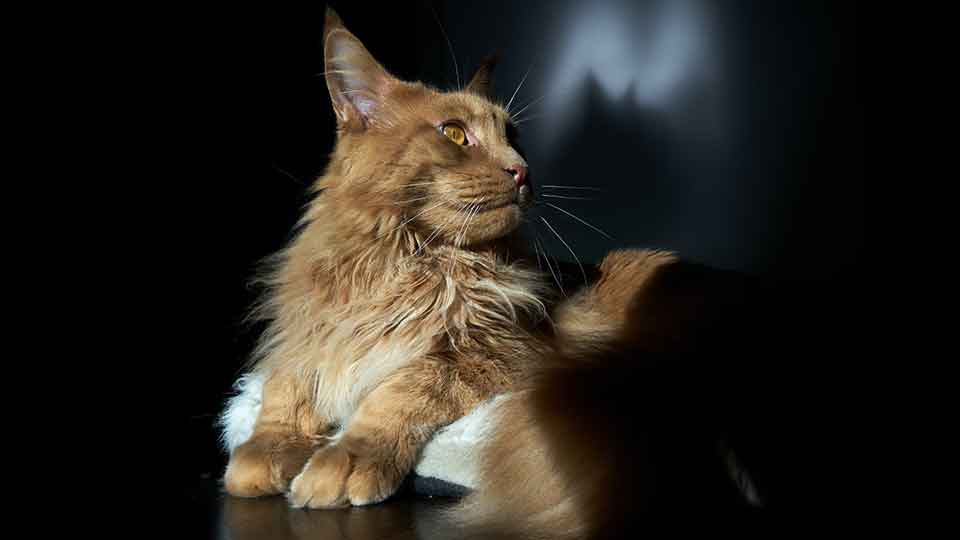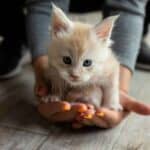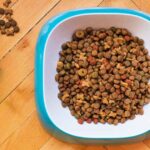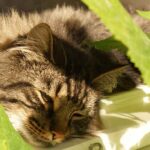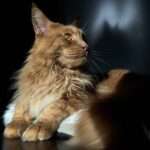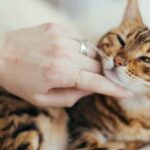When kittens don’t grow as heavy as they should, their parents worry about their kittens’ health. Should they be worried they are so small?
But why is it so important to monitor their weight? The answer lies in the close relationship between a Maine Coon’s weight and its health. A cat that’s too light might be malnourished or suffering from underlying health issues. At the same time, one that’s overweight can be at risk of obesity-related diseases such as diabetes, arthritis, and heart problems.
With their large, muscular build, determining if your cat is slim, stocky, or perhaps a bit too hefty can be tricky. Monitoring your Maine Coon’s weight is an important part of keeping them healthy and active in their prime. In this guide, I’ll share insights on the average Maine Coon weight and how to assess your own cat’s ideal size.
Key Characteristics of Maine Coon Cats
To comprehend healthy Maine Coon weights, it’s helpful first to review some of the breed’s defining physical and personality traits:
Their large, muscular bodies require more calories and are prone to rapid weight gain if inactive or overfed. Proper nutrition and exercise prevent obesity.
Males are significantly larger than females, ranging from 15-25 pounds compared to 8-12 pounds in maturity. Sexual dimorphism affects their size.
Slow maturation over 3-5 years means their ideal weight changes gradually as they fully develop. Growth spurts alter needs.
Highly food-motivated and voracious appetites require controlled portion sizes to prevent overeating. Free feeding leads to overweight Maine Coons.
Intense playfulness and activity levels help balance their diets as long as they are engaged. Low exercise contributes to obesity.
Thicker winter coats may add 1-2 extra pounds seasonally. This usually sheds off come springtime.
What Influences Maine Coon Weight?
Many factors impact an individual Maine Coon’s appropriate weight, including:
Age: Kittens and adolescents require frequent weight checks to stay on target as they grow and fill out.
Gender: Males generally weigh 25-30% more than mature females.
Genetics: Some bloodlines tend towards dense, heavyset builds.
Diet: High-calorie, low-protein diets contribute to obesity.
Activity Level: Sedentary indoor Maine Coons need lower caloric intake than active outdoor cats.
Health Issues: Diseases later in life can cause weight fluctuations up or down.
Spay/Neuter Status: Sterilization often slows metabolism and predisposes cats to weight gain.
What Are Average Weights for Maine Coons?
While individual variation exists, most Maine Coons fall within these general weight ranges:
| Kittens | Adolescents | Adults | Seniors |
| Birth: 3.5 – 5 oz 2 months: 1.5 – 2 lbs 4 months: 3 – 4 lbs 6 months: 5 – 8 lbs | 8 months: 7 – 10 lbs 10 months: 8 – 13 lbs 1 year: 10 – 15 lbs | Females: 8 – 12 lbs Males: 15 – 25 lbs | Females: 7 – 11 lbs Males: 13 – 22 lbs |
Weights at the higher end are often seen in show cats bred for large size and males used for stud. Pet Maine Coons with natural body types tend toward mid-range healthy weights.
How to Weigh Your Maine Coon Cat
To assess your adult Maine Coon’s weight, follow these steps:
Obtain a digital scale big enough to accommodate your cat. Turn it on and ensure it’s placed on a flat, even surface.
Place your cat into a large basket, cat carrier, or box. Close securely with your cat fully inside.
Lift the container with your cat onto the center of the scale’s platform. Allow it to calibrate and display the total weight.
Remove your cat from the container and return the empty carrier to the scale. Note this weight.
Subtract the empty container’s weight from the total weight to get your cat’s weight.
You can use a measuring tape to estimate weight based on their body length and girth for kittens and cats who won’t stay still. Or schedule regular weigh-ins at your vet clinic.
Maintaining a Healthy Maine Coon Weight
To keep your Maine Coon within their ideal weight range:
Feed a portion-controlled, high protein, grain-free diet suited for their age and activity level. Cats thrive on scheduled mealtimes, not free feeding.
Incorporate regular exercise into their routine, like interactive play, cat towers for climbing, and harness walks. Keep those muscles engaged!
Limit unhealthy, high-calorie treats and table scraps. Stick to healthy feline rewards.
Weigh monthly at home to monitor trends and adjust food as needed.
Have your vet perform body condition assessments at annual exams to evaluate overweight or underweight status.
Rule out any underlying illnesses if experiencing drastic weight loss or gain.
With diligent weighing, controlled diets, plenty of exercise, and vet guidance, your Maine Coon will stay lean and athletic as they mature. A healthy weight means a happy cat!
How to Assess Your Maine Coon’s Body Condition
In addition to tracking numbers on the scale, visually assessing your Maine Coon’s body condition allows you to determine if they are overweight or underweight.
Use this 1-5 body condition score chart:
1 – Emaciated. Ribs, spine, and hips protruding. Noticeable waist tuck. Loss of muscle mass.
2 – Underweight. Ribs easily felt with minimal fat covering. Obvious waist tuck.
3 – Ideal weight. Ribs palpable under light fat covering. Noticeable waist behind ribs.
4 – Overweight. Ribs difficult to feel under moderate fat cover. Abdomen distended. Minimal waist.
5 – Obese. Ribs not palpable under heavy fat. No waist, distended stomach. Fat deposits at the base of the tail.
Ideally, most adult Maine Coons should fall between scores of 3-4. Seniors may thin out to a 2-3. Frequent body scoring lets you identify subtle weight changes early to intervene.
How Age Affects Maine Coon Weights
Maine Coon weights fluctuate as they grow from kitten to senior:
- Kittens experience rapid gains of 1-2 lbs per month up to 1 year old. Feed kitten formulas to support this growth.
- Adolescent Maine Coons may have growth spurts between 1-3 years old as they fully fill out, gaining 2-4 lbs.
- Adult Maine Coons reach peak weight around age 3-5. Maintain weight with controlled portions for their activity level.
- Senior Maine Coon metabolism may slow down, gradually losing 1-2 lbs. Monitor any weight loss in seniors as it may signify illness.
Routine weight checks ensure your Maine Coon stays on track with diet and nutrition adjustments tailored to their changing needs.
Typical Weight Changes in Unspayed vs. Neutered Maine Coons
Reproductive status also impacts Maine Coon weights:
- Unaltered males gain significant muscle mass and reach the heaviest mature weights as intact toms.
- Unspayed females average 2-3 lbs lighter than males. Heat cycles and nursing may cause fluctuations.
- Neutered males typically weigh 8-12 lbs less than unneutered toms. Metabolism slows after castration.
- Spayed females average 1-2 lbs more than unspayed cats. Slower metabolism often leads to weight gain after spaying.
Sterilization limits natural hormones that drive muscle development and activity in unaltered cats. Adjust nutrition and exercise for spayed/neutered Maine Coons to prevent unhealthy weight gain.
How Genetics Influences Maine Coon Size
Some Maine Coon bloodlines produce noticeably larger kittens and adults:
- Show cats bred for large size often weigh 2-3 lbs more than average pet Maine Coons.
- Imported European lines tend to be longer-bodied and leggier, weighing more.
- Thicker, denser bone structure adds weight over delicate boning in cats.
- High growth hormone levels in certain lines fuels larger muscle mass.
If your Maine Coon far exceeds typical weights despite a controlled diet and environment, genetics may predispose them to be a really big kitty! Work closely with your vet to keep them healthy.
Final Thoughts
While generic growth charts provide averages, each Maine Coon has an ideal weight range based on their individual characteristics. Routine at-home weighing along with veterinary body condition assessments ensures you stay informed about subtle gains or losses. With diligence to their changing nutritional needs from kitten to senior, your devoted companion will lead an enriched, active life at a healthy feline weight tailored just for them.

